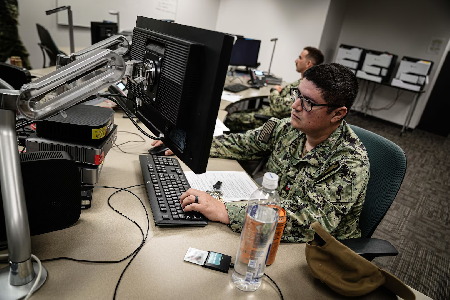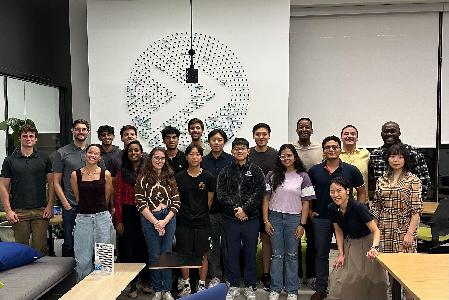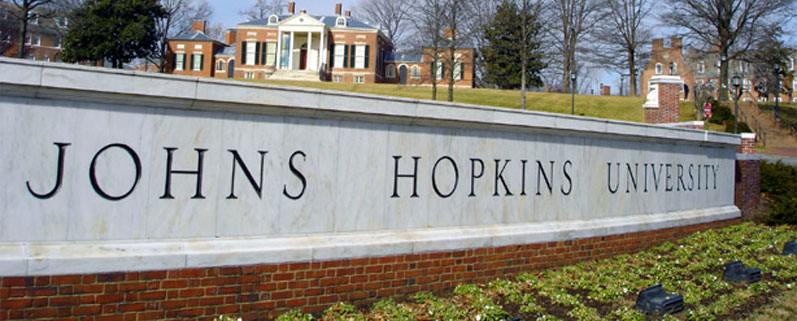Johns Hopkins Technology Ventures (JHTV) partnered with Microsoft to give five-figure funding to three startups, founded by faculty and students of the eponymous university, that are addressing environmental and medical challenges.
The total of $150,000, which the companies split equally, was granted via the Microsoft Innovation Acceleration Awards program, which a statement that JHTV released today described as “an extension of a collaboration” that Johns Hopkins University (JHU) and the software giant set up in 2020. The awards, like that collaboration, aim to help JHU-affiliated startups launch, scale and commercialize.
JHTV chose the three winners out of 26 applications from a mix of faculty members, undergraduate and graduate students, and licensed startups. The startups were chosen by a panel of experts that included JHU alumni, successful entrepreneurs and key industry players. What made these companies stand out, according to JHTV’s associate director for startup advancement Mark VanderZyl, were their innovative and impactful solutions to real-world challenges. VanderZyl also highlighted the companies’ projected ability to maximize Microsoft’s support and make meaningful progress in the next six-to-12 months.
The awardees were:
- AbacusBio, founded by Whiting School of Engineering professor Jeffrey Gray and Jeffrey Ruffolo, a molecular biophysics Ph.D. candidate. The company has created software that can predict antibody structure from an amino acid sequence. This software allows the rapid development of next-generation antibody therapeutics. These are the type of therapies used for cancer, autoimmunity and inflammatory diseases.
- InfernoGuard, cofounded by undergraduate neuroscience and computer science major Nandita Balaji. InfernoGuard uses a network of mounted sensory devices to develop an early wildfire detection and warning system. Balaji has been working on this project with her cofounders since high school. They’ve already tested the system in Yosemite National Park. The award will help the company finalize product development before launch as the founders scale software components, as well as design and build product inventory for deployment. Commercialization of this machine-learning based wildfire risk assessment software is around the corner.
- SpectralDx, cofounded by assistant professor Simon Mathews, of the School of Medicine’s gastroenterology and hepatology division; and Amit Banerjee, a senior research scientist at the university’s Applied Physics Laboratory. The team is creating a tool that will allow patients to use their smartphones to screen their own stool samples for colorectal cancer. The company plans to use the money to continue research into this camera-based diagnostic tool.
Before you go...
Please consider supporting Technical.ly to keep our independent journalism strong. Unlike most business-focused media outlets, we don’t have a paywall. Instead, we count on your personal and organizational support.
3 ways to support our work:- Contribute to the Journalism Fund. Charitable giving ensures our information remains free and accessible for residents to discover workforce programs and entrepreneurship pathways. This includes philanthropic grants and individual tax-deductible donations from readers like you.
- Use our Preferred Partners. Our directory of vetted providers offers high-quality recommendations for services our readers need, and each referral supports our journalism.
- Use our services. If you need entrepreneurs and tech leaders to buy your services, are seeking technologists to hire or want more professionals to know about your ecosystem, Technical.ly has the biggest and most engaged audience in the mid-Atlantic. We help companies tell their stories and answer big questions to meet and serve our community.
Join our growing Slack community
Join 5,000 tech professionals and entrepreneurs in our community Slack today!

A new model for thinking about how to grow regional economies: the Innovation Ecosystem Stack

Can the nation’s biggest cyber hub even handle Craiglist founder’s $100M security pledge?

20 tech community events in October you won’t want to miss



